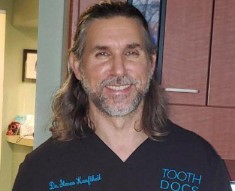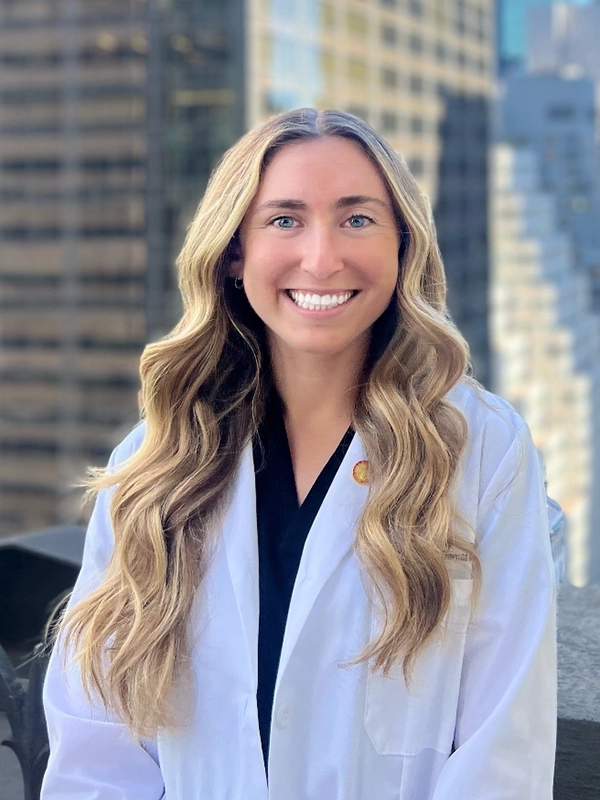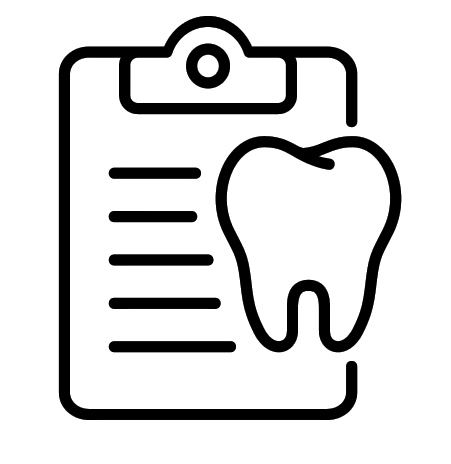Share the Care. Get $50 Each! Refer a friend and you both receive $50 in dental credit

$175 New Patient Special
-
![ToothDocs ToothDocs]() Exclusive offers for accessible dental care
Exclusive offers for accessible dental care
-
![ToothDocs ToothDocs]() Invisalign treatment starting at $3,999
Invisalign treatment starting at $3,999
-
![ToothDocs ToothDocs]() Smile restoration starting at $899
Smile restoration starting at $899
Start your journey toward a brighter, healthier smile.
$2995 Single Dental Implants
-
![ToothDocs ToothDocs]() FREE Consultation
FREE Consultation
-
![ToothDocs ToothDocs]() Financing options available with Cherry,
CareCredit, Alphaeon, and Proceed
Financing options available with Cherry,
CareCredit, Alphaeon, and Proceed
-
![ToothDocs ToothDocs]() Same-day appointments available
Same-day appointments available
Schedule an appointment for a healthier, more beautiful smile.
FOR DENTISTRY
NEW YORK
ToothDocs is a premier dental practice with offices in Roslyn, New York, and 5th Avenue, New York, offering an array of exceptional services and procedures to cater to every aspect of patients' oral health needs. With a perfect blend of top-notch patient care and cutting-edge technology, we have mastered the art of treating individuals across all age groups within a serene and comforting environment.
Putting patient satisfaction at the forefront, ToothDocs ensures personalized care by listening attentively, explaining treatment plans thoroughly, and addressing any concerns or questions to tailor each appointment specifically for you. Trust us at ToothDocs – where exceptional dentistry meets compassionate care!
To learn more about our dental services, visit one of the three ToothDocs locations in New York or call our Roslyn dental office at (516) 625-0088, our 5th Avenue dental office at (212) 969-9490.
Meet the specialists of ToothDocs

Dr. Steven Kauftheil

Dr. Nazli Diba

Dr. Victoria Friedel

Dr. Evelyn Spencer

Dr. Chris Higgins

Dr. Katie Chou

Dr. Julia Lin

Dr. Rebecca Vaeth

Dr. Ryan Reichelt

Dr. Sherry Aviczer
Services

Dentures & Partial Dentures
WHAT ARE DENTURES? Dentures are a prosthetic device used to replace missing teeth. They are removable and can be taken out at night for cleaning. There are two types of dentures a...
View More
Emergency Dentistry
Dental emergencies are scary, but the good news is that our dentists in New York, NY, can address them efficiently to safeguard your oral health and restore your smile. Emergency d...
View More
Same Day Dentistry
In a fast-paced world where time is of the essence, the realm of dentistry has evolved to offer solutions that align with our busy lives. Same-day dentistry, also known as single-v...
View More
Clear Aligners and Invisalign
A straight, confident smile can enhance your appearance and boost your self-esteem. Traditional braces have long been the go-to solution for orthodontic corrections. Still, advance...
View More
Pediatric Dentistry
Children have unique oral health needs that require specialized care. Especially when their jaws are still growing, their teeth and bite alignment can change rapidly. Their teeth a...
View More
Bone Grafting
Bone grafting is a surgical procedure that involves the transplantation or placement of bone tissue to repair and regenerate damaged or missing bone. It is commonly used in various...
View More
Periodontal Services
Periodontal disease, also known as gum disease, is a common oral health issue that affects the gums and surrounding structures. It occurs when bacteria in plaque build up on the te...
View More.
Insurance Information
We accept most PPO insurance plans as well as payment via cash, card, or check.




FAQ
According to the American Dental Association (ADA), it is recommended to floss at least once a day. This is because plaque, a sticky film of bacteria that forms on teeth, can harden and turn into tartar within 24 hours if not removed by proper brushing and flossing. Failing to remove plaque and tartar buildup can lead to cavities, gum disease, and other oral health issues.
However, some individuals may need to floss more than once a day depending on their oral health needs and habits. For instance, those who have braces or other orthodontic appliances may need to floss after every meal as food particles tend to get stuck in between wires and brackets easily. Additionally, people with a higher risk of developing gum disease or those who have recently undergone dental procedures may also benefit from more frequent flossing.
Visiting the dentist regularly is crucial for maintaining good oral health. Not only does it help prevent dental problems, but it also allows the dentist to catch any issues early on and provide prompt treatment. However, many people are unsure about how often they should visit the dentist. In this section, we will discuss the recommended frequency of dental visits and factors that may affect how often you need to go.
According to the American Dental Association (ADA), most individuals should visit their dentist at least every six months for a routine checkup and cleaning. This recommendation applies to both adults and children with no current or ongoing dental issues. These biannual visits allow dentists to monitor your oral health and address any concerns before they escalate into bigger problems.
However, there are some exceptions where more frequent visits may be necessary. For instance, if you have a history of gum disease or are prone to cavities, the dentist may recommend more frequent visits, typically every three to four months. This regular monitoring helps keep these conditions under control and prevents further damage.
Step 1: Choosing the Right Toothbrush
The first step towards proper toothbrushing is choosing the right toothbrush. It is recommended to use a soft-bristled toothbrush with a small head that can easily reach all areas of your mouth. Hard or medium bristles can cause damage to your enamel and gums, so it's best to avoid them.
Step 2: Applying Toothpaste
Squeeze a pea-sized amount of fluoride toothpaste onto your toothbrush. Fluoride helps strengthen your enamel and protects against cavities. If you have sensitive teeth or other dental issues, consider using specialized toothpaste recommended by your dentist.
Step 3: Positioning Your Toothbrush
Hold your toothbrush at a 45-degree angle towards the gum line. This angle helps clean both the surface of your teeth and the area where they meet the gums.
Step 4: Brushing Motion
Using gentle circular motions, move the brush back and forth on each side of every tooth for about two minutes. Make sure you cover all surfaces - front, back, top, and chewing surfaces - to ensure thorough cleaning.
Step 5: Don't Forget Your Tongue
Brushing your tongue can help eliminate bacteria and freshen your breath. Gently brush your tongue from back to front.
Step 6: Rinse and Spit
After brushing, rinse your mouth thoroughly with water. Spit out the toothpaste and any remaining debris.
While dental implants are designed to be a permanent solution, there are several factors that can affect their lifespan. These include:
1) Oral Hygiene: Good oral hygiene is crucial for maintaining the health of your dental implant. Poor oral hygiene can lead to gum disease, which can cause bone loss around the implant and eventually lead to its failure.
2) Existing Health Conditions: Certain health conditions, such as diabetes, autoimmune disorders, and cancer, may affect the success rate of dental implants. It is important to inform your dentist about any pre-existing conditions before undergoing implant surgery.
3) Smoking: Smoking has been linked to an increased risk of implant failure due to its negative effects on healing and blood flow in the mouth.
4) Bite Force: Excessive bite force, such as teeth grinding or clenching, can put excessive pressure on the implant and cause it to fail.
5) Maintenance: Regular dental checkups and maintenance appointments are important for the longevity of your dental implant. Your dentist will assess the health of your implant and make any necessary adjustments or repairs.
Some common concerns addressed in a smile makeover include:
1. Crooked or misaligned teeth: Orthodontic treatments such as braces or clear aligners can help straighten crooked or misaligned teeth.
2. Discolored or stained teeth: Professional teeth whitening treatments can effectively remove stains and discoloration caused by aging, smoking, or consuming certain foods and drinks.
3. Gaps between teeth: Dental bonding or porcelain veneers can be used to close gaps between teeth for a more uniform appearance.
4. Chipped or cracked teeth: These imperfections can be corrected with dental bonding or porcelain veneers for a strong and natural-looking result.
5. Missing Teeth: A combination of dental implants, bridges, or dentures can be used to replace missing teeth and restore the function and appearance of your smile.
6. Gummy smile: Excess gum tissue can be contoured or removed through a procedure called gum reshaping to reveal more of your natural teeth and improve the overall balance of your smile.
In addition to these common concerns, a smile makeover can also address other issues, such as uneven gum lines, worn-down teeth, and an unbalanced bite.
Below are some common scenarios that may constitute a dental emergency:
- Severe Tooth Pain: If you experience sudden and intense tooth pain, it could be a sign of an underlying issue such as an infected or abscessed tooth. This type of pain usually does not go away on its own and requires immediate treatment from a dentist.
- Broken or Chipped Tooth: A broken or chipped tooth can happen due to accidents while playing sports, biting into something hard, or even during normal daily activities. If the break is large enough, it can cause sharp edges that may cut your tongue or cheeks.
- Knocked-Out Tooth: Whether it's due to a fall, sports injury, or accident, having a permanent tooth knocked out is considered an emergency and requires prompt attention from a dentist. The chances of saving the tooth are higher if you seek treatment within 30 minutes of the injury.
- Loose Tooth: A loose permanent tooth in adults can indicate significant damage to the surrounding tissues and requires immediate evaluation by a dentist.
- Lost Filling/Crown: Losing a filling or crown may not seem like an urgent matter at first glance, but it leaves the affected area vulnerable to bacteria, which can cause further damage. It is essential to get it replaced as soon as possible.
- Abscessed Tooth: An abscessed tooth is a severe infection that can spread to other parts of the body if left untreated. Symptoms include severe tooth pain, swollen gums, and fever.
- Bleeding Gums: Bleeding gums may be a sign of gum disease, which can lead to tooth loss if left untreated. If you experience persistent bleeding when brushing or flossing, it's important to see a dentist right away.
- Broken Jaw: A broken jaw is a serious dental emergency that requires immediate medical attention. If you suspect your jaw is broken, go to the emergency room or call 911 immediately.
- Severe Swelling in the Face or Mouth: Swelling in the face or mouth can be a sign of an infection or other serious issues, such as an impacted wisdom tooth. Seek emergency dental care if you experience sudden and significant swelling in these areas.
- Uncontrollable Bleeding After Dental Surgery: While some bleeding after dental surgery is normal, excessive bleeding that does not stop with pressure should be addressed immediately by your dentist.
Locations
- MON - FRI9:00 am - 5:00 pm
- SAT9:00 am - 4:00 pm
- SUNClosed
1044 Northern Blvd., Suite 106, Roslyn, New York 11576
Phone: (516) 625-0088
Email: [email protected]
- MON9:00 am - 6:00 pm
- TUE9:00 am - 5:00 pm
- WED9:00 am - 6:00 pm
- THU - FRI9:00 am - 5:00 pm
- SAT - SUNClosed










